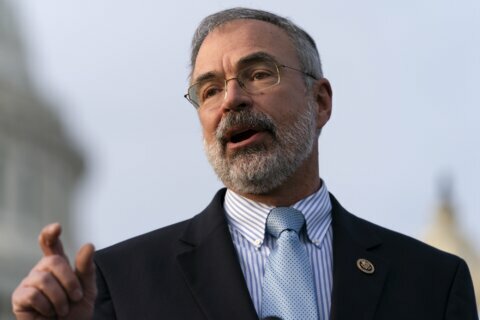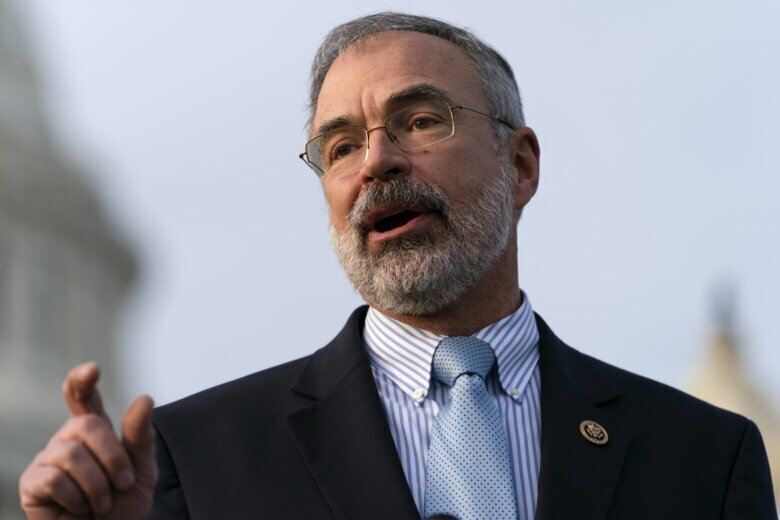This article was republished with permission from WTOP’s news partners at Maryland Matters. Sign up for Maryland Matters’ free email subscription today.

This content was republished with permission from WTOP’s news partners at Maryland Matters. Sign up for Maryland Matters’ free email subscription today.
After a pair of reports suggested that one dose of COVID-19 vaccine is nearly as effective as two, Rep. Andrew P. Harris (R-Md.) on Friday urged Gov. Lawrence J. Hogan Jr. (R) to shift Maryland’s vaccination policy, as a way of stretching the state’s supply without diminishing the public’s benefits.
The state’s response: Thanks, but no, thanks.
In his letter to the governor, Harris, an anesthesiologist, cited a study of 9,100 heath care workers in Israel who received one dose of the Pfizer-BioNTech vaccine, instead of the two that the drugmaker recommends.
Researchers later found that the single-dose was 85% effective in blocking infection two to four weeks later.
The manufacturers’ own studies, on a much larger group of vaccine recipients, showed the vaccine to be 95% effective if subjects were given two doses three weeks apart.
In light of similar findings, the British government decided to prioritize giving as many people as possible an initial dose, allowing up to 12 weeks between the two.
“We can look to the current success of the United Kingdom, who has similarly faced vaccine scarcity, and feel assured that the data now indicates this is a safe approach to protecting as many as possible,” Harris told Hogan.
“In addition to significantly broadening our vaccinated population at comparable protective levels, such a policy would also complement efforts by mRNA vaccine manufacturers to produce variant-specific boosts,” he added.
At a press briefing on Friday, the nation’s top experts said there would be no change in U.S. vaccine policy.
“There are studies all the time, there are preprints all the time, there is real-world evidence all the time,” said Andy Slavitt, the White House senior adviser for COVID-19 response.
“One study, even though it may look attractive, it may capture a headline … it isn’t always what it appears to be,” he added. “It’s important to understand we’re not going to be persuaded by one study that happens to grab headlines.”
In early January, FDA officials said optimal dosing levels and the length of time between them “are all reasonable questions to consider and evaluate in clinical trials.”
“However, at this time, suggesting changes to the FDA-authorized dosing or schedules of these vaccines is premature and not rooted solidly in the available evidence,” the agency added. “The available data continue to support the use of two specified doses of each authorized vaccine at specified intervals. For the Pfizer-BioNTech COVID-19 vaccine, the interval is 21 days between the first and second dose. And for the Moderna COVID-19 vaccine, the interval is 28 days between the first and second dose.”
Dr. Anthony Fauci, the head of the National Institute for Allergy and Infectious Diseases, said the Israeli study is worthy of follow-up, but he cautioned that the subjects were “younger and healthier,” on average, than the population as a whole.
Double-dosing, he said, also offers more protection against COVID-19 variants, particularly for people with compromised immune systems.
“If you look at the difference between the degree, the intensity of response after a first dose and compare it to after a second dose, the second dose has 10 times higher levels of neutralizing antibodies,” he told reporters on Friday.
In a statement, Charles L. Gischlar, a spokesman for the Maryland Department of Health, said, “The state adheres to federal vaccination guidelines and protocols and follows the science to ensure that individuals are properly vaccinated.”
A Harris spokesman did not respond to a request for an interview.








